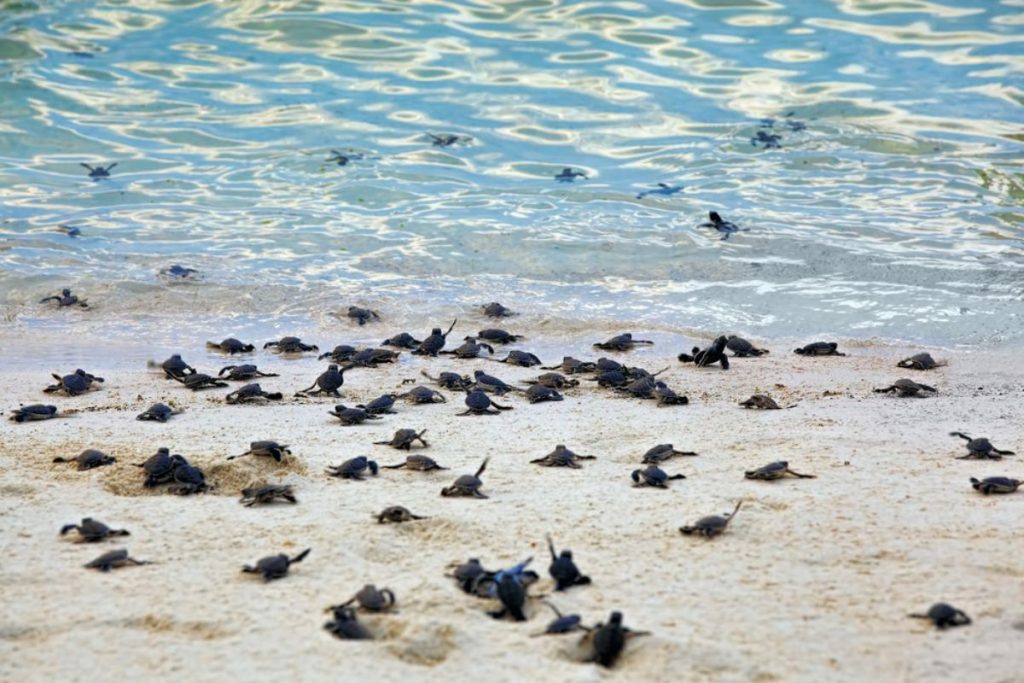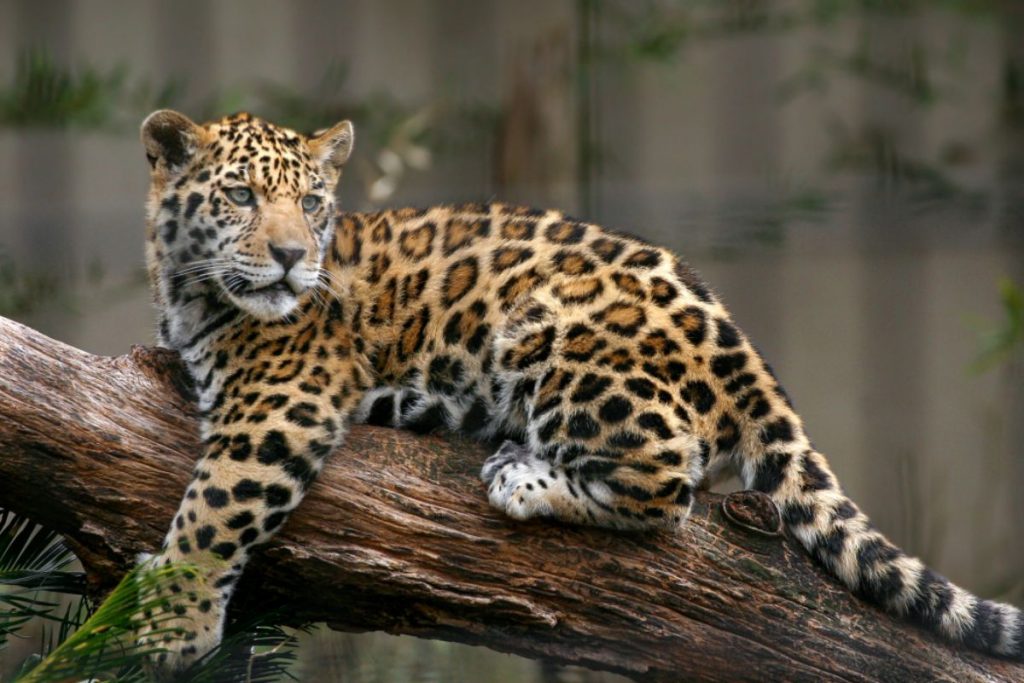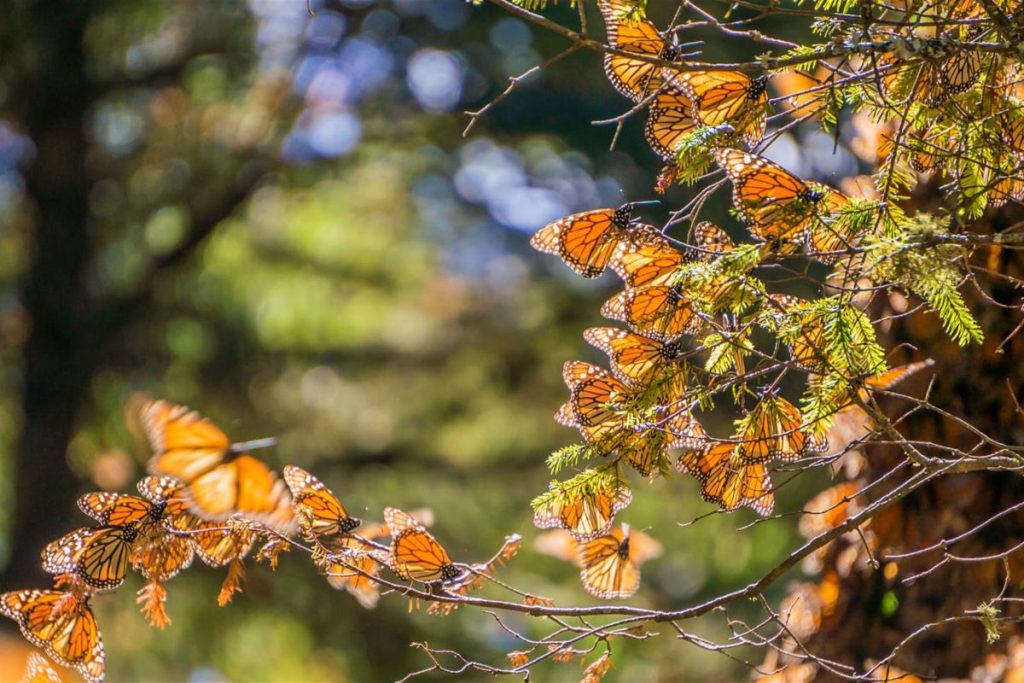Learn what Carlos Slim Foundation is doing to protect the Environment
In 2009, Carlos Slim Foundation established an alliance with the World Wildlife Fund (WWF), to promote the conservation of the natural wealth of Mexico and sustainable development.
The WWF-Carlos Slim Foundation Alliance are currently working on six priority regions:
1 Mesoamerican Mexican Reef
2 Chihuahuan Desert
3 Gulf of California
4 Monarch Butterfly
5 Oaxaca
6 Chiapas
The work is done together with local, national and international partners, joining forces and financial and human resources addressing sustainable development and biodiversity conservation. The WWF-Carlos Slim Foundation Alliance also collaborates with federal and state government agencies to ensure that the investments contribute to meeting national and regional goals.
Work is done on Climate Change at the national level. So far the Alliance has supported 63 local organizations in 104 projects throughout the nation.

The app WWF-Telcel -developed by Innovación Digital Carso– provides information on three species facing extinction that are protected by the alliance: White Shark, Monarch Butterfly and Jaguar.
Mexican Biodiversity Collection
Another action taken by the Carlos Slim Foundation to increase awareness of the importance of environmental protection is the Mexican Biodiversity Collection, which was first published in 2007.
It is a series of books published to spread knowledge on the biological diversity of Mexico, its natural wealth, importance, the threats it faces and the possibilities for its long-term preservation. The collection is part of the Carlos Slim Foundation’s programs on the protection and conservation of biodiversity, and sustainable development in Mexico.
12 volumes have been published:
I. Mexican Territory: Forests, Deserts and Seas (2007)
II. Mexican Nature: Legacy of Conservation (2008)
III. Mexican Fauna: Splendor of Nature (2009)
lV. American Felines, surprising hunters (2010)
V. Threatened animals of America. The challenge for their survival (2011)
VI. Animals of America: Migrations and Large Concentrations (2012)
VII. Mammals of the World: Biogeographical Regions (2013)
VIII. Natural Areas of Mexico: Legacy of Conservation (2014)
IX. The Seas of Mexico and the World (2015)
X. Natural Resources of Mexico. Environmental services and conservation (2016)
XI. Conservation of Mexico’s Natural Environment. Successful case studies. (2017)
XII. Birds of Mexico: Diversity and conservation (2018)
CONABIO – FCS NATURALISTA Alliance
There is also the CONABIO – FCS NATURALISTA Alliance, a platform in which the user learns about the great biodiversity of Mexico and the world, shares observations of the natural world and meets other enthusiasts and professionals in the area.
Training is given in communities in Oaxaca, Chiapas, Tabasco, Campeche and Quintana Roo, in the use of the platform for sustaining and promoting the site.

The Naturalist app lets you upload, identify and look for observations with photos and location through GPS. This app was developed by iNaturalist.org together with the California Academy of Sciences (www.naturalista.mx) and is led by Conabio and supported by the Carlos Slim Foundation.
So far training has been given to 100 rural communities and 1,835 naturalists, and 882,062 species observations have been registered on the platform, including the discovery of new species.
The Carlos Slim Foundation’s vocation is the comprehensive training of people of all ages, in Mexico and Latin America, to strengthen their skills and allow them to actively participate in economic and social development, achieving greater opportunities and a better quality of life.
For this purpose it works with academic institutions, governments and civil society organizations, so that its programs on education, health, employment, justice, immigrants, road safety, human development, sports, the environment, culture, humanitarian aid and economic development benefit the greatest number of people, with special emphasis on the most vulnerable groups.



